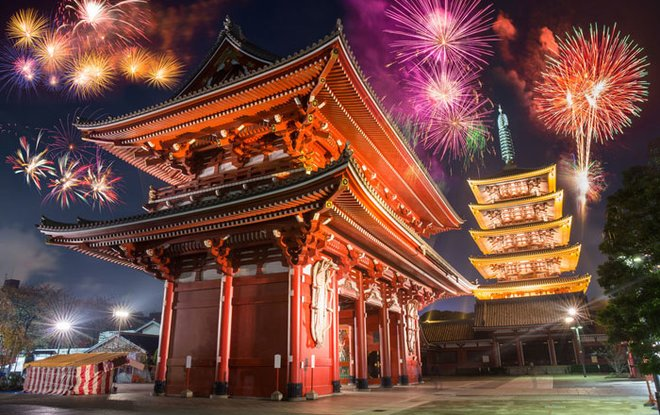- Stillwater Public Schools
- English as a Second Language
Winter 2023-2024
Posted by Stephanie Coca on 12/11/2023 10:00:00 AM
Dear Families,
I hope that this finds you happy and healthy. I know we are all ready for some rest and relaxation. With our winter break upon us, I wanted to call your attention to some upcoming events.
In January, we will begin our annual WIDA Access testing. This is not a test our students must study for. It is an assessment to see how their proficiency in English has grown over the last year. This assessment includes four parts: Listening, Reading, Writing, and Speaking. The testing window runs from January to March. Please look for a note from your ELL teacher as to when your child will take the assessments.
In March, SPS will hold parent conferences. However, I would like for you to know that you can request a parent conference whenever you feel it is necessary. If you need an interpreter, please let the school know. We have interpreters available in all languages. SPS is required to offer you an interpreter. If you are not offered an interpreter, please call or email Stephanie Coca (405) 762-2830/ scoca@stillwaterschools.com . It is the highest priority of the district to ensure that parents and teachers can communicate without the limitation of a language barrier. Your concerns are important to us.
Finally, I thought I would leave you with information about holidays around the world that take place in November and December. It is always fun to see the cultural events and celebrations that make up our world. It reminds us how similar we are.
Diwali is India’s biggest holiday, celebrated on November 12. It is the festival of lights. Clay lights are lit outside the home to protect them from spiritual darkness. Diwali is a Hindu celebration that is also celebrated by non-Hindus as well. This celebration lasts for 5 days.
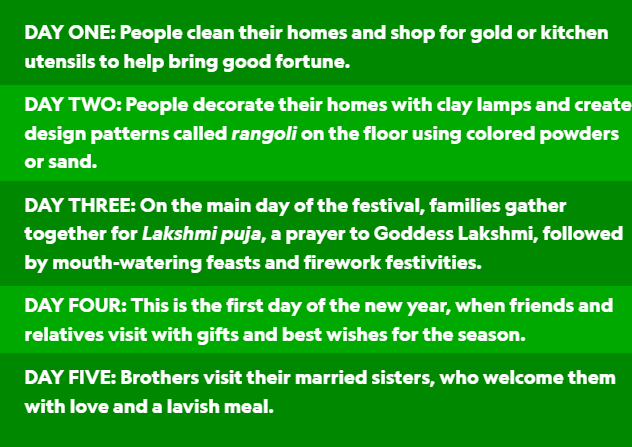
Krampusnacht is held on December 5th. It is a legend that mixes pagan rituals with Christianity originating in Germany. Krampus is a half-goat, half-demon monster who punishes children who misbehave during Christmastime. While St. Nicholas rewards children with gifts, Krampus punishes the naughty children.
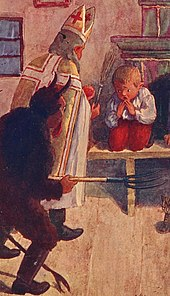
St. Nicholas Day St. Nicholas is the patron saint of Greece and Russia and of sailors and children. In Holland he is known as Sinterklaas. He would arrive on horseback in a red Bishop’s robe to deliver gifts and sweets to children. This day is celebrated on December 5th, or 6th or 19th (Eastern Europe).
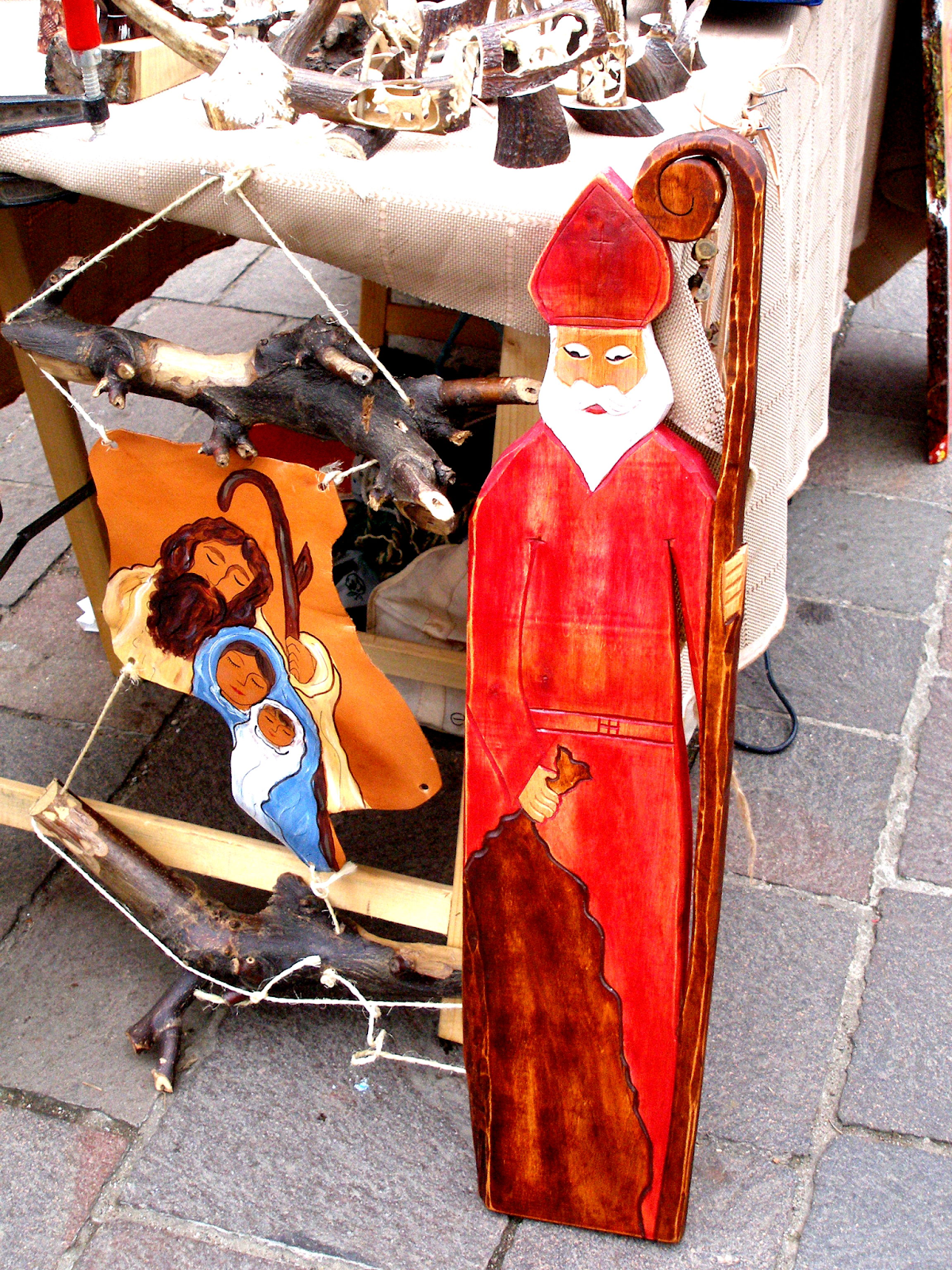
Bodhi Day: This day celebrates the Buddhist holiday in which Guatama Buddha is said to have attained Enlightenment or Nirvana. It is celebrated on December 8th in China, Korea, Japan, Vietnam and the Philippines. Buddhists may choose to meditate longer, chant Buddhist texts, perform kind acts or enjoy a traditional meal of tea and cake.
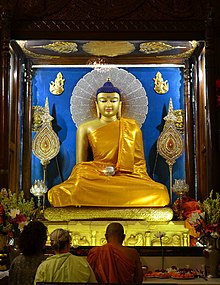
Day of the Virgin of Guadalupe This is a national holiday in Mexico that is celebrated in Catholic churches all of Mexico. You can also see the celebration here in Stillwater at the Catholic Church. The celebration occurs on December 12 because this was the day in 1531 that a young indigenous man named Juan Diego received a miraculous visit from the Virgin Mary. The rest of the story is full of miracles that led to shift in the beliefs of the indigenous people of Mexico.
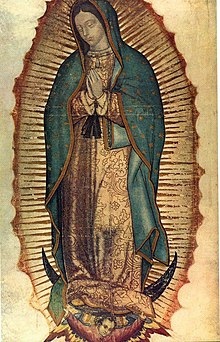
Santa Lucia Day is celebrated in Scandinavian countries as the beginning of the Christmas season. On December 14 there is a festival celebrating the Christian martyr Saint Lucy. Young girls wear white dresses with lighted wreaths on their heads and young boys wear white pajamas. The lights come from the pagan tradition of using bonfires to scare off evil spirits. During the festival, children sing traditional songs, eat saffron bread and ginger biscuits, and drink coffee with their families.
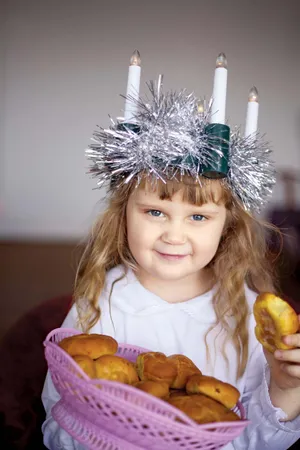
Las Posadas is celebrated from December 16-24th in cities and towns across Mexico. Each evening during the festival, a small child dressed as an angel leads a procession through the streets of the town. The procession is primarily made up of children dressed in silver and gold robes carrying lit candles and images of Mary and Joseph riding a donkey. Adults, including musicians, follow the procession, which visits selected homes and asks for lodging for Joseph and Mary. Traditionally, the procession is always refused lodging, though the hosts often provide refreshments. At each stop, passages of scripture are read, and Christmas carols are sung.
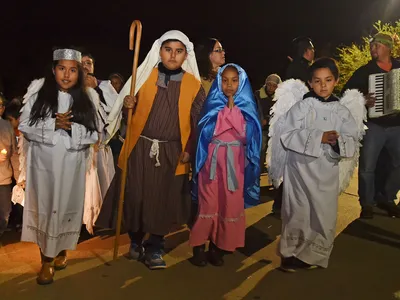
Hanukkah will occur this year from December 7 through December 15th. This is a Jewish festival that occurs according to the Gregorian calendar. It is celebrated for 8 days and reaffirms the ideas of Judaism. Each of the 8 evenings, a candle is lit on an elaborate candelabra called a menorah and a blessing is given. There are daily prayers at home and in the synagogue. Special foods are made from this time of year and children receive presents and gifts of money.
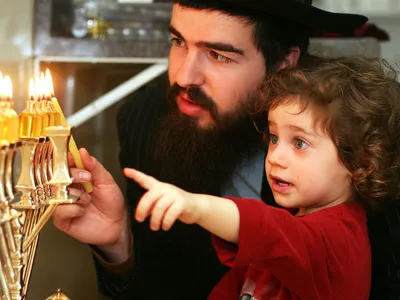
Winter Solstice is the shortest day of the year and occurs on December 21.
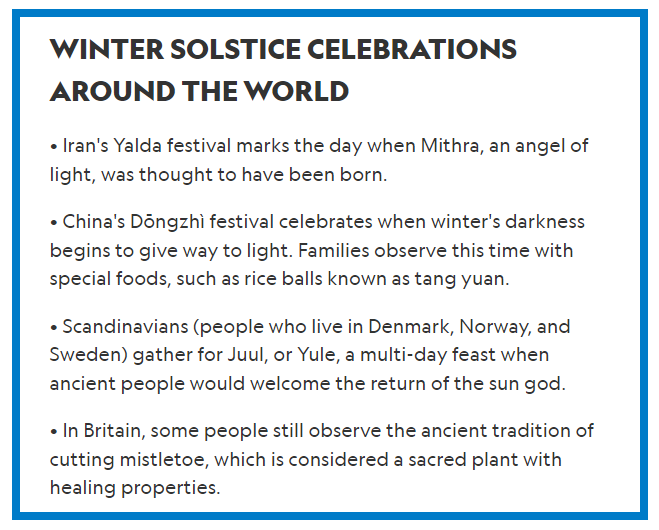
Christmas In the U.S., church services celebrating the birth of Jesus begin in many places on the evening of December 24th, while others occur on the 25th. Religious services and cultural traditions of the home include readings in the bible and Christmas carols. Families will decorate large fir trees with ornaments, lights, and candy canes. Children learn of St. Nicholas (aka. Santa Claus) and hope that they will receive presents under the tree on Christmas day. Christmas is a time for family and friends to spend time together. Many countries around the world have different ways of celebrating Christmas. In India, a mango tree is decorated instead of a fir tree. In Mexico, children break a piñata filled with toys and candy. In Brazil, families participate in summer festivals with fireworks and picnics. Other countries celebrate the secular aspects of the holiday instead of the religious aspects.
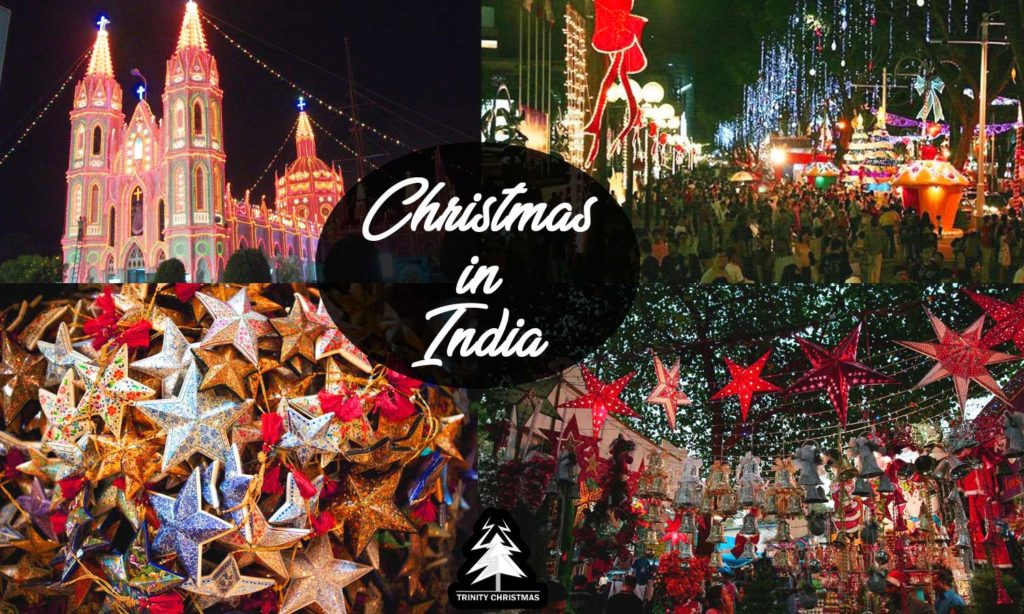
Kawanzaa is celebrated from December 26-December 31st with activities that honor African American culture and heritage. Family and friends gather and celebrate with gift exchanges and food. The celebration is inspired by African cultural practices. Families decorate a table with a traditional woven mat called a Mkeka. They add a basket filled with fruits and vegetables and one ear of corn for each child to represent the harvest. A unity cup called a kikombe cha umoja is also represented. Families light a Kinara (candelabra) each night that represent the 7 principles of Kwanzaa (unity, self-determination, collective work and responsibility, cooperative economics, purpose, creativity, and faith).
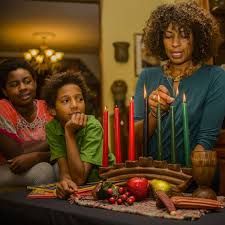
Boxing Day is observed on December 26th in the United Kingdom, Canada, Hong Kong, Australia, New Zealand, and South Africa. This custom started during the Victorian era. The rich would give box gifts to the poor. Masters would give their servants the day off and send them home with a special Christmas box. Now, the tradition is to watch football (soccer) matches and eat turkey sandwiches on this day!

Just like New Year’s Eve, Omisoka is celebrated as the beginning of a new year with new possibilities, but their celebrations are a little different. Japanese New Year takes place on the last day of the year (December 31st). In preparation for a new year and a clean slate, people purify their homes and remove last year’s clutter by cleaning from top to bottom. This is called “osoji”. They have a giant feast with friends and family with some traditional Japanese foods. Often, people go out to celebrate or stay home and watch a nation-wide New Year’s talent competition until it’s time to count down to midnight. Omisoka isn’t just about having a party, it is also considered a spiritual event for many Japanese people, and at midnight they visit Shinto shrines. Temples ring a large cast iron bell at midnight to signify the 108 earthly wants that created human suffering.
